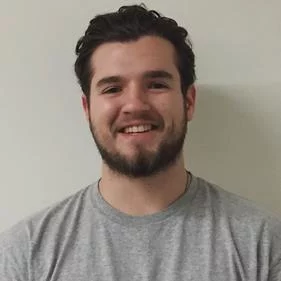Planning for the future: JScreen at Boston University

On Nov. 10, the Jewish Medical Network (JMN) of Boston University, a Hillel student group at BU, hosted JScreen for its 2015 Fall Semester kick-off event at the BU Florence and Chafetz Hillel House. Thanks to the generous funding support from both BU Hillel and JScreen, JMN was able to reduce the cost of screening, which is generally around $99 per person, to only $25 for each participant. In the weeks leading up to the event, members of JMN educated students about the relevance and importance of screening for genetic diseases, and during the past month JScreen has followed up with each person that participated in the testing. Both JMN and JScreen are proud to have screened 39 students during this event, which was inspired by my attending two unrelated guest-speaker events that were held at BU’s Hillel House and Temple Israel in Brookline, MA.
In the fall of 2014, JMN invited Dr. Jodi Hoffman to speak about Jewish Genetic Diseases and the importance of genetic screening. Then a few months later, the MEOR program, which is offered through BU Hillel, invited Judge Dan Butler speak about his son, Mikey, who lived with Cystic Fibrosis (CF), a genetic disease, before he died at 24 years of age. Judge Butler described a myriad of challenges that he and his family faced while taking care of Mikey and trying to provide him with the most healthy and fulfilling life that was possible given the circumstances. He explained how Mikey’s disease both tested and shaped his own character, and he said that CF was a major force in defining Mikey’s life, the lives of his family, and the lives of everyone with whom he connected. Hearing Judge Butler’s story about Mikey was an eye-opening experience for me; it really personalized the message about the importance of genetic screening that my fellow JMN members and I heard from Dr. Jodi Hoffman.
Throughout Judge Butler’s talk, I thought about the impact that long-term illnesses and life-threatening diseases have on children and their families, and I wondered how children and their families find the strength and resources that they need to both redefine and work toward everyday goals. In Mikey’s obituary that was written by the Post-Gazette, Nina Butler said that Mikey “didn’t want to be so paralyzed by the fear of what could happen tomorrow that he didn’t appreciate today”. To me, these words spoke about an incredible inner strength, understanding, and focus, and I marveled at how Mikey seemed to not allow CF to determine his approach to life. My thoughts were on Mikey’s parents too as I imagined how I might feel if I were in their shoes. For me, it seemed clear that parents of children with life-threatening diseases are very likely to have difficulty facing the emotional and physical challenge of caring for their child while wrestling with the fear of what the future holds. While I recognized that the future is unknown to us all, I realized in this moment that genetic screening, education and counseling is a valuable tool that could help individuals and families, who one day might share a similar story.
JMN at Boston University is committed to the Jewish value of Tikkun Olam, and its mission is to raise awareness and to educate the school community about health-related issues. Our goal for the November 10th JScreen event was to explain the importance of genetic screening and counseling in terms of its value in gathering personal health information in order to make more informed decisions about the future. JMN encouraged students to take a proactive role in their own healthcare by participating in the screening and receiving follow-up genetic counseling from JScreen; many students reported that this was just another way of planning for their future, which is often on the minds of many college students.
A month has passed since JMN hosted the JScreen, and everyone who was screened is receiving counseling calls from JScreen to discuss his or her results. One of my closest friends learned that he is a carrier for PKU, a genetic disease that results in the absence of a certain enzyme that converts the amino acid Phenylalanine to Tyrosine. Without this enzyme, Phenylalanine is converted to toxins, which build up and can be fatal if not held in check. Typically, this disease is discovered within the first days after birth when a baby is tested for high levels of Phenylalanine. Now, my friend can share that he is a carrier for PKU with his healthcare providers and together they can use this information proactively, if they choose to and if it is necessary. Moreover, he and other students, who may have gathered important medical information from this genetic screening event, are in a position to make more informed and proactive healthcare decisions that might affect not only themselves but also their future families. JMN would like to thank BU Hillel and JScreen for making this genetic screening event a success!
Jonah Chazin, President of Jewish Medical Network at BU, is a junior in Boston University’s Sargent College, where he is majoring in Human Physiology. Jonah is an aspiring medical student who volunteers at Brigham and Women’s Hospital, is a member of the student-run startup Happening LLC, and is a founding member of the Zeta Deuteron Chapter of the International Jewish Fraternity Alpha Epsilon Pi.
If you are interested in hosting a screening event at your campus Hillel, please email [email protected].